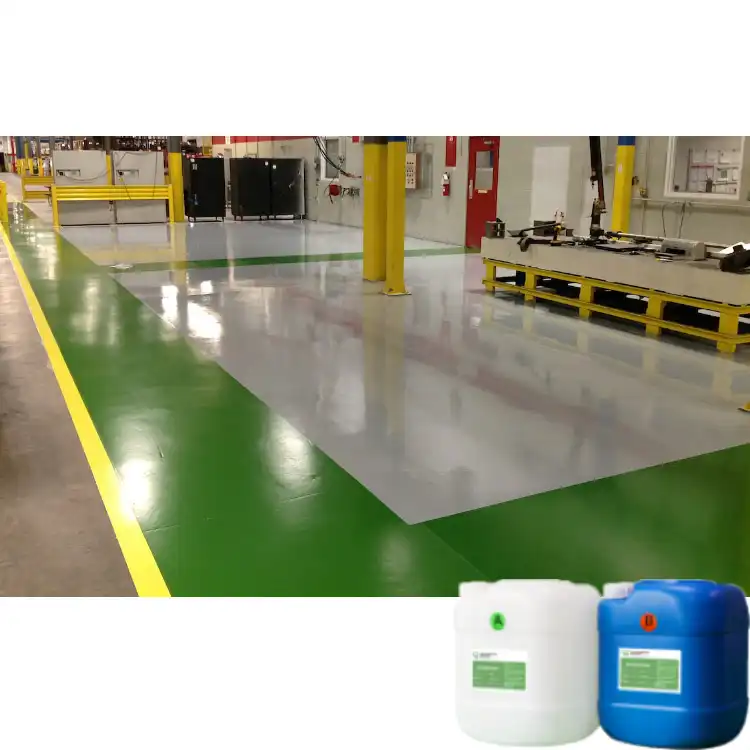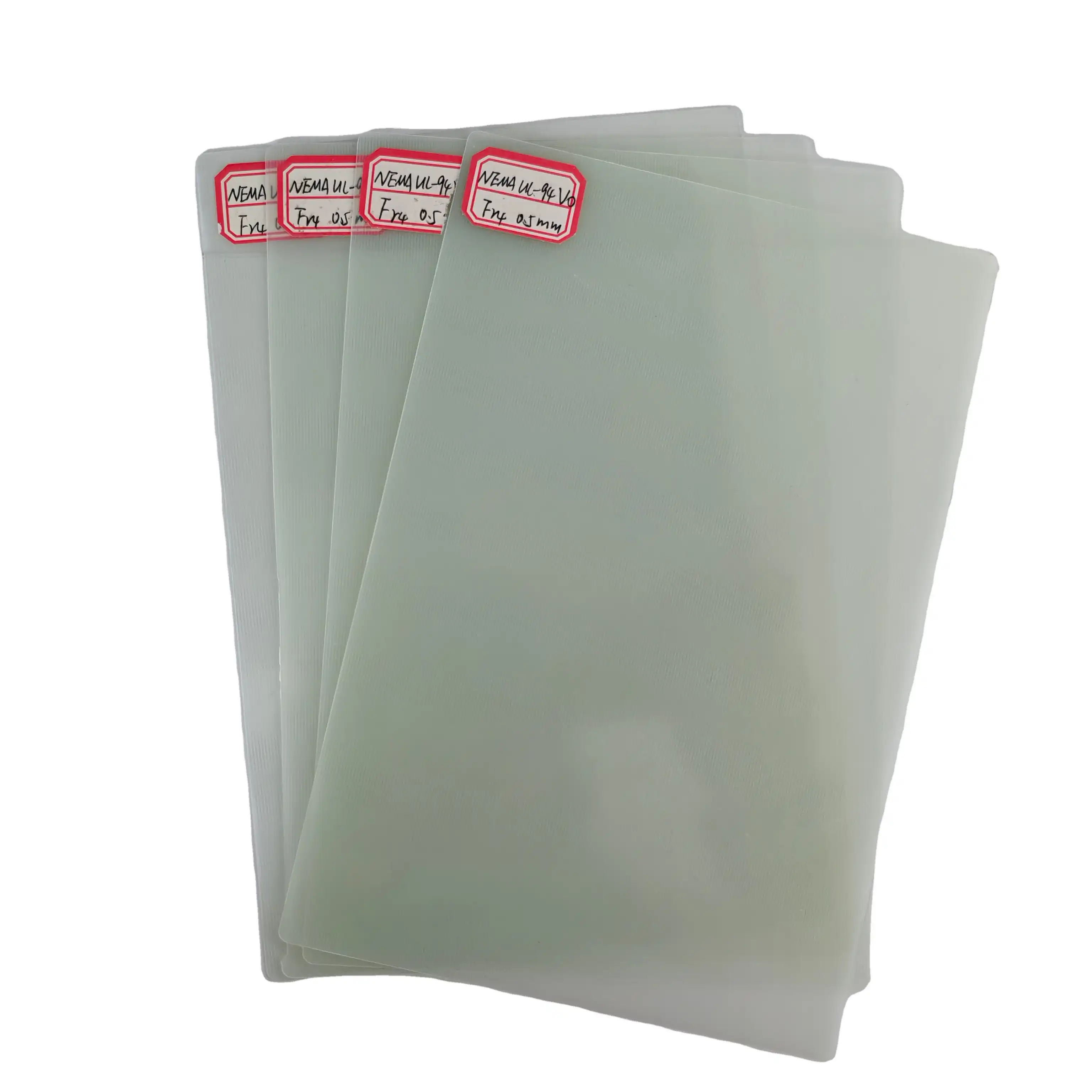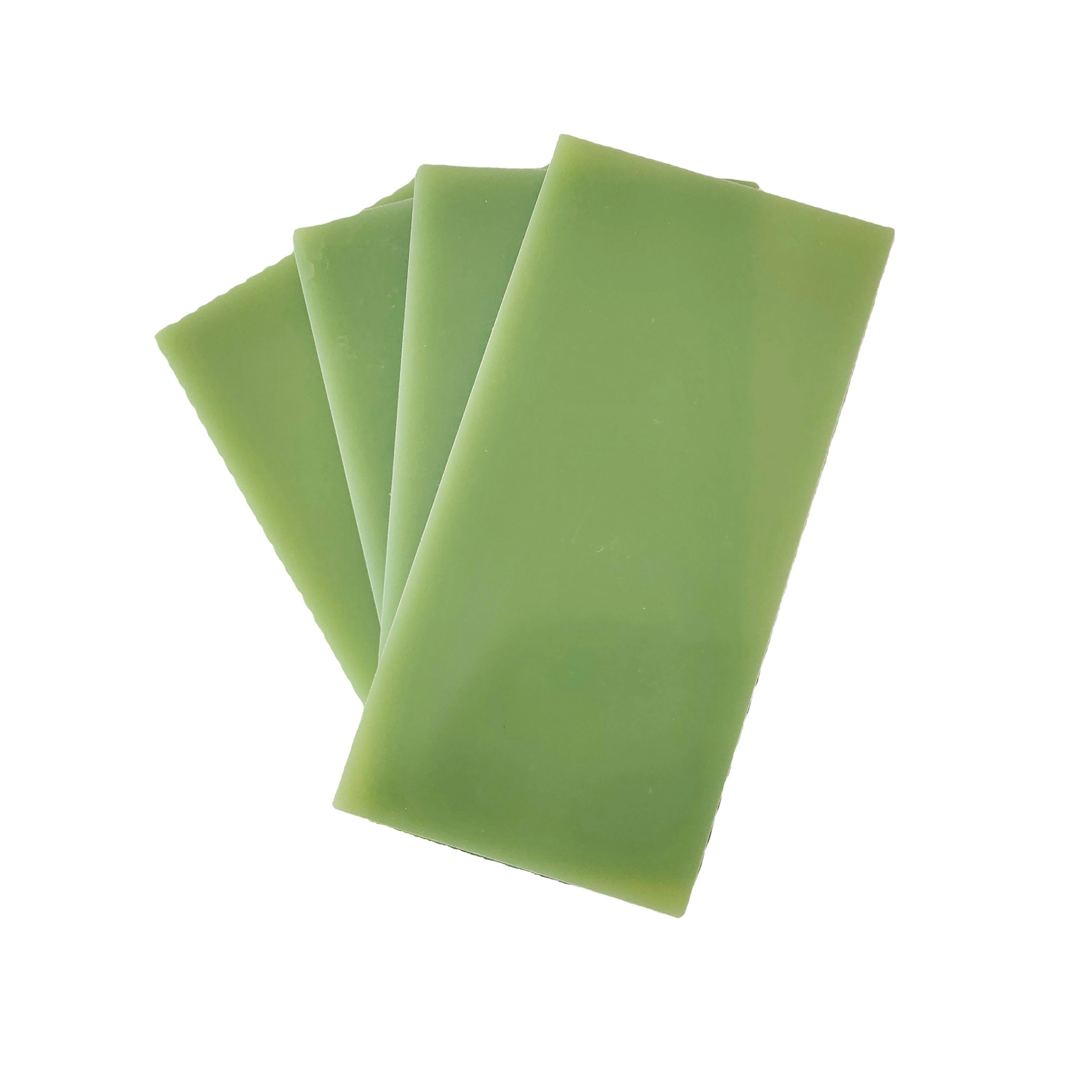The Properties of FR4 Glass Epoxy Sheet Explained
2025-03-18 17:11:55
When exploring the realm of insulating materials, the FR4 glass epoxy sheet emerges as a paragon of reliability and versatility. Renowned for its robust mechanical strength, exceptional electrical insulation, and formidable resistance to heat, this material is a cornerstone in myriad industries. Composed of woven fiberglass cloth impregnated with an epoxy resin binder, FR4 boasts a flame-retardant nature, earning its "FR" designation, which stands for "flame resistant." Its dielectric properties render it indispensable in electronics, while its durability ensures longevity in demanding applications. Whether you're delving into circuit board manufacturing or seeking steadfast insulation solutions, understanding the intrinsic qualities of FR4 glass epoxy sheet unveils its unparalleled value in engineering and design.
Unveiling the Core Characteristics of FR4 Glass Epoxy Sheet
Mechanical Fortitude and Structural Integrity
One of the standout attributes of FR4 glass epoxy sheet lies in its mechanical prowess. The interwoven fiberglass provides a tensile strength that rivals many metals, ensuring it can withstand considerable stress without succumbing to deformation. This resilience is paramount in applications where structural integrity is non-negotiable, such as in aerospace components or heavy machinery insulation. The epoxy resin further enhances this durability by creating a cohesive matrix that resists cracking and abrasion, making FR4 a stalwart choice for environments that demand unyielding performance.
Electrical Insulation Par Excellence
In the domain of electronics, FR4 glass epoxy sheet shines as an exemplary insulator. Its dielectric strength, often exceeding 20 kV/mm, ensures that it can thwart electrical currents, safeguarding sensitive components from short circuits and breakdowns. This property is particularly invaluable in printed circuit boards (PCBs), where FR4 serves as the substrate, providing a stable foundation that prevents unwanted electrical interference. The material's low dielectric constant and dissipation factor further augment its efficacy, ensuring signal integrity in high-frequency applications.
Thermal Endurance and Flame Resistance
The ability to endure elevated temperatures without compromising functionality is another hallmark of FR4 glass epoxy sheet. With a glass transition temperature (Tg) typically ranging from 130°C to 140°C, FR4 maintains its structural and electrical properties under thermal duress. Its flame-retardant nature, compliant with UL94 V-0 standards, means it self-extinguishes when exposed to fire, a critical feature in safety-conscious industries. This thermal resilience makes FR4 an ideal candidate for applications where heat dissipation and fire safety are paramount, such as in power electronics and automotive systems.
Applications That Harness the Power of FR4 Glass Epoxy Sheet
Dominance in Printed Circuit Board Manufacturing
The ubiquity of FR4 glass epoxy sheet in PCB production is a testament to its unparalleled suitability. As the backbone of most circuit boards, FR4 provides a rigid, stable platform that supports intricate copper traces and components. Its dimensional stability ensures that PCBs retain their shape during soldering and operational stresses, while its electrical insulation properties prevent unwanted current leakage. From consumer electronics to industrial control systems, the reliance on FR4 underscores its pivotal role in modern technology, enabling the seamless operation of devices we depend on daily.
Versatility in Industrial Insulation Solutions
Beyond electronics, FR4 glass epoxy sheet finds extensive use in industrial insulation applications. Its robustness and resistance to environmental factors make it an ideal choice for insulating mechanical components, such as motor mounts, switchgear, and transformers. The material's ability to resist moisture absorption ensures longevity in humid or corrosive environments, while its thermal stability allows it to perform reliably in high-temperature settings. This versatility positions FR4 as a go-to solution for manufacturers seeking durable, long-lasting insulation across diverse sectors.
Emerging Uses in Renewable Energy Systems
As the world pivots toward sustainable energy, FR4 glass epoxy sheet is carving out a niche in renewable energy applications. In solar panels and wind turbines, FR4 serves as an insulating material that withstands the rigors of outdoor exposure, including UV radiation and temperature fluctuations. Its flame-retardant properties enhance safety in energy storage systems, such as battery enclosures, where thermal runaway risks must be mitigated. The adaptability of FR4 to these cutting-edge applications highlights its evolving relevance in the quest for greener technologies.

Factors to Consider When Selecting FR4 Glass Epoxy Sheet
Thickness and Dimensional Specifications
Choosing the right FR4 glass epoxy sheet begins with understanding the dimensional requirements of your application. Available in a spectrum of thicknesses, from thin laminates to robust panels, FR4 can be tailored to meet specific mechanical and electrical needs. Thinner sheets are often favored in compact electronics, where space is at a premium, while thicker variants provide enhanced strength for structural applications. Ensuring precise tolerances in dimensions is crucial, as deviations can compromise performance, particularly in precision-engineered systems.
Environmental and Chemical Resistance
The operational environment plays a pivotal role in determining the suitability of FR4 glass epoxy sheet. While inherently resistant to moisture, chemicals, and UV exposure, prolonged exposure to harsh conditions may necessitate additional protective measures, such as coatings or enclosures. In applications involving aggressive solvents or extreme humidity, evaluating the material's long-term stability is essential. FR4's low water absorption rate, typically below 0.1%, ensures it remains functional in damp conditions, but understanding the specific environmental challenges is key to optimizing its lifespan.
Cost-Effectiveness and Performance Trade-Offs
While FR4 glass epoxy sheet offers a compelling blend of performance and durability, cost considerations are inevitable in material selection. Compared to alternative insulators, such as ceramics or polyimides, FR4 often presents a more economical option without sacrificing essential properties. However, in ultra-high-temperature or high-frequency applications, specialized materials may outperform FR4, albeit at a higher cost. Balancing performance requirements with budget constraints is crucial, and FR4's broad applicability often makes it a judicious choice for manufacturers seeking value without compromising quality.
Conclusion
The FR4 glass epoxy sheet stands as a paragon of innovation in insulating materials, blending mechanical strength, electrical insulation, and thermal resilience into a singular, versatile solution. Its dominance in electronics, industrial applications, and emerging renewable energy systems underscores its enduring relevance. By grasping its core properties and tailoring its use to specific needs, manufacturers can unlock its full potential, ensuring reliability and efficiency in their products. As industries evolve, FR4 remains a steadfast ally, adapting to new challenges with unwavering dependability.
Contact Us
If you're looking for high-quality FR4 glass epoxy sheet or need expert advice on selecting the right material for your application, we're here to help. With over 20 years of experience in producing and selling insulating sheets, we can provide the perfect solution for your needs. Contact us today at info@jhd-material.com to discuss your requirements and discover how our expertise can benefit your projects.
References
1. "Epoxy Resin Composites: Properties and Applications" - Journal of Advanced Materials Research, Volume 45, Issue 3, 2019.
2. "Flame-Retardant Materials in Electronics: A Comprehensive Study" - International Journal of Engineering Science, Volume 12, Issue 7, 2020.
3. "Dielectric Properties of Fiberglass Laminates" - Proceedings of the IEEE Conference on Electrical Insulation, 2018.
4. "Thermal Stability of Glass Epoxy Composites" - Materials Science and Engineering, Volume 33, Issue 5, 2021.
5. "Applications of Insulating Materials in Renewable Energy Systems" - Journal of Sustainable Engineering, Volume 8, Issue 2, 2022.
6. "Mechanical Behavior of FR4 Substrates in PCB Manufacturing" - Electronics Manufacturing Review, Volume 19, Issue 4, 2020.







